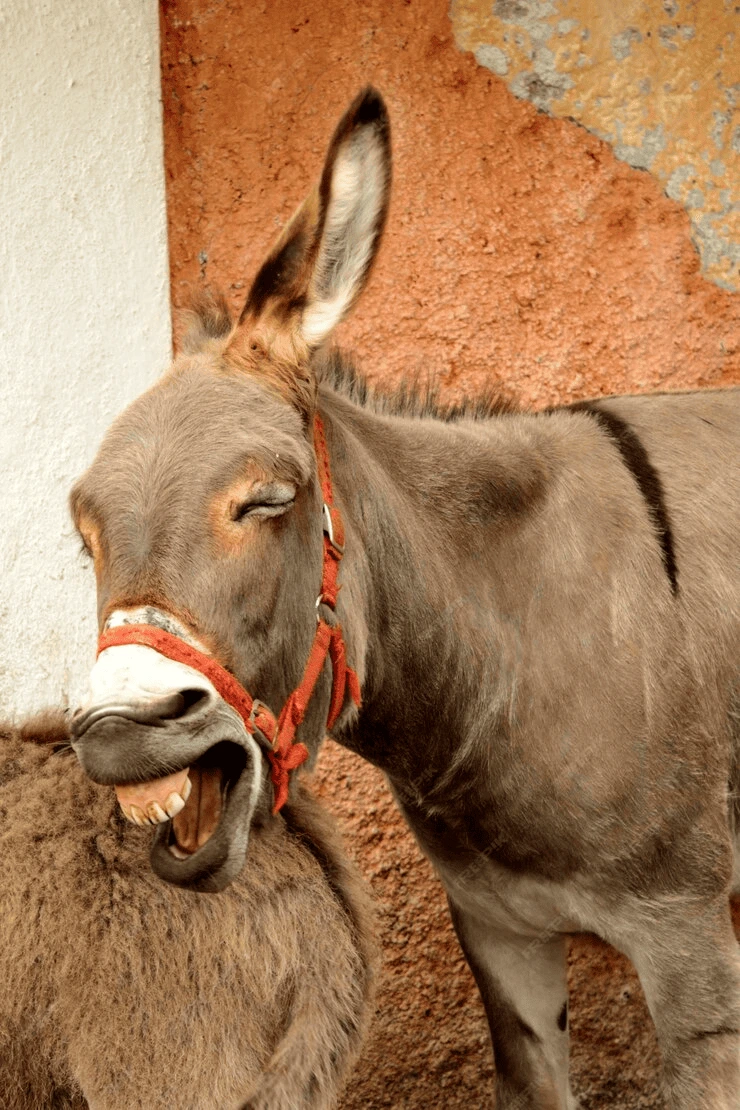Donkey Teeth Care
Donkey teeth require regular care to prevent problems that can affect their eating and comfort. Here’s a closer look at common dental issues and how to manage them:
Common Dental Issues
- Sharp Points and Hooks
- Cause: Natural wear from chewing can create sharp points on the teeth, leading to discomfort.
- Symptoms: Difficulty chewing, dropping food, or sensitivity when touched.
- Treatment: Regular dental floating (filing) by a veterinarian to smooth sharp points.
- Dental Overgrowth
- Cause: Insufficient roughage or fibrous food to naturally wear down the teeth.
- Symptoms: Dropping food, weight loss, or excessive salivation.
- Treatment: Regular vet check-ups and teeth filing to keep teeth properly worn.
- Wolf Teeth
- Cause: Small, vestigial teeth that may grow abnormally and irritate the mouth.
- Symptoms: Discomfort when eating or while using a bit.
- Treatment: Removal by a vet if causing problems.
- Abscesses or Infections
- Cause: Bacterial infections in the teeth or gums, often after trauma.
- Symptoms: Swelling, bad breath, or lameness if the infection spreads to the jaw.
- Treatment: Antibiotics and sometimes tooth removal, depending on severity.
Routine Care and Maintenance
- Annual Dental Exams: It’s essential to have your donkey’s teeth checked by a vet or equine dentist at least once a year. This helps catch any issues early, such as sharp points or overgrowth.
- Diet: Provide plenty of hay and fibrous foods that encourage natural tooth wear.
- Floating: Most donkeys need their teeth floated (filed) every 1–2 years. However, some donkeys may require more frequent floats, especially if they have dental issues.
Signs Your Donkey May Have Dental Problems
- Difficulty chewing or eating
- Dropping food or eating slowly
- Excessive salivation
- Bad breath
- Weight loss or reduced feed intake
Regular dental care will ensure your donkey can eat comfortably and maintain a healthy weight. If you notice any signs of discomfort, consult a veterinarian for a dental check-up.

